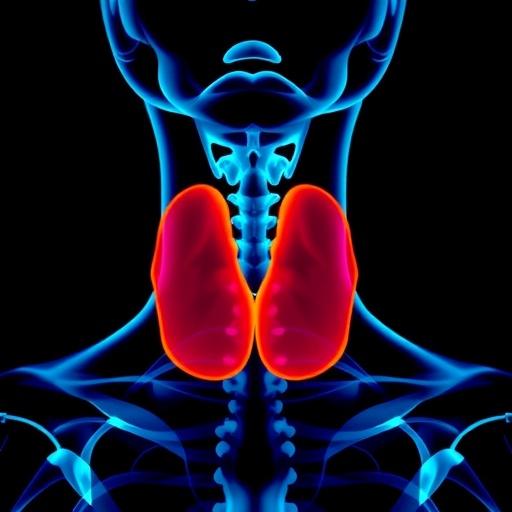In the ever-evolving landscape of cancer research, new breakthroughs and findings often pique the interest of scientists and the general public alike. Among the latest publications garnering attention is a retraction note concerning the investigation of two histone deacetylase inhibitors (HDACIs), belinostat and panobinostat, in the context of thyroid cancer. This research, originally conducted by a team of esteemed scientists including D. Chan, Y. Zheng, and J.W. Tyner, has led to significant discussions surrounding the reliability of preclinical results and the integrity of scientific reporting.
In a recent article published in the Journal of Cancer Research and Clinical Oncology, the authors presented their findings regarding the effects of belinostat and panobinostat on thyroid cancer cells. While the initial studies elucidated potentially promising outcomes, the subsequent retraction note raises important questions about the validity of the results. Retractions are a critical aspect of the scientific process, allowing researchers to uphold standards of integrity and accuracy. The retraction indicates that discrepancies were identified within the original data, warranting this profound step.
Retractions serve to clarify the scientific record and highlight the importance of rigorous peer review and quality control in research publications. The implications of a retraction extend beyond the immediate findings; they underscore the necessity for scrutiny in scientific endeavors. In this case, the initial claims presented in the study regarding the effectiveness of belinostat and panobinostat against thyroid cancer may require reevaluation. Reliable results are foundational in guiding future cancer therapies and treatment modalities.
The criticality of this retraction cannot be understated, as it directly impacts ongoing and future studies into the use of HDAC inhibitors for treating various cancer types. Specifically, thyroid cancer, which accounts for a substantial percentage of endocrine malignancies, requires innovative therapeutic strategies. Understanding the mechanisms by which belinostat and panobinostat operate at a molecular level is crucial for advancing treatment options. Histone deacetylase inhibitors have shown promise in various malignancies by reversing epigenetic changes that promote tumor growth and survival.
However, scientific inquiry continues to reinforce the complexity of cancer biology. The notion that pharmacological interventions, such as HDACIs, can effectively modulate cancer pathways depends on corroborative evidence from well-designed trials. Therefore, the publication and subsequent retraction of this study highlight an essential learning opportunity for researchers in the field: the necessity of maintaining transparency and rigor in experimental methodologies.
In looking ahead, the focus must turn towards understanding where the previous research fell short. The retraction calls for enhanced investigation protocols, along with the incorporation of validation studies to support initial claims. It illustrates that responsible scientific practices are paramount for the credibility of research findings. Such discourse is vital as the scientific community collaborates to develop innovative therapeutic techniques against cancer.
Furthermore, with the ongoing advancements in technology, such as next-generation sequencing and sophisticated bioinformatics tools, researchers have unprecedented opportunities to delve deeper into cancerous pathways. These technologies promise to unravel the intricate biological mechanisms central to cancer development and drug resistance. Harnessing these innovations effectively can lead to a more profound understanding of thyroid cancer and the potential efficacy of HDACIs in clinical applications.
The research presented in the retraction note serves as a reminder that while science strives for objective truth, it is also susceptible to flaws. As researchers push the boundaries of knowledge, it becomes increasingly critical to uphold ethical standards in reporting and to foster a culture that encourages rigorous peer review and constructive criticism. This foundational principle not only promotes scientific integrity but also fosters trust among the public and stakeholders alike.
As the scientific community continues to navigate these turbulent waters, the discourse initiated by the retraction of the belinostat and panobinostat study should galvanize researchers to approach their work with renewed diligence. By scrutinizing findings and embracing a collaborative mindset, the field can advance toward novel cancer therapies that might one day overcome the challenges presented by thyroid cancer and other malignancies.
In conclusion, this retraction highlights indispensable components of the scientific method: transparency, accountability, and the relentless pursuit of knowledge. As researchers reflect on the implications of this note, the onus falls upon them to push forward—armed with the knowledge that each study contributes a vital piece to the intricate puzzle of cancer biology. The road ahead may be fraught with challenges, yet it remains rich with potential for unlocking new avenues of cancer treatment and improving patient outcomes.
Ultimately, this cautionary tale serves as an invitation for ongoing critical engagement within the scientific community. It challenges the status quo, urging researchers to continuously verify their results and share this knowledge responsibly. The path toward effective therapies requires not only innovation but also a steadfast commitment to scientific rigor and ethical practices in all research efforts.
Subject of Research: Thyroid Cancer and Histone Deacetylase Inhibitors
Article Title: Retraction Note: Belinostat and panobinostat (HDACI): in vitro and in vivo studies in thyroid cancer.
Article References:
Chan, D., Zheng, Y., Tyner, J.W. et al. Retraction Note: Belinostat and panobinostat (HDACI): in vitro and in vivo studies in thyroid cancer.
J Cancer Res Clin Oncol 151, 299 (2025). https://doi.org/10.1007/s00432-025-06359-8
Image Credits: AI Generated
DOI: N/A
Keywords: Retraction, Belinostat, Panobinostat, Thyroid Cancer, Histone Deacetylase Inhibitors, Cancer Research.
Tags: Belinostat and panobinostat in thyroid cancerCancer cell research methodologiesCancer research integrity and retractionsD. Chan Y. Zheng J.W. Tyner research teamHistone deacetylase inhibitors researchimplications of research retractionsImportance of peer review in researchJournal of Cancer Research and Clinical OncologyPreclinical findings reliabilityQuality control in scientific publicationsScientific reporting standardsThyroid cancer treatment studies





